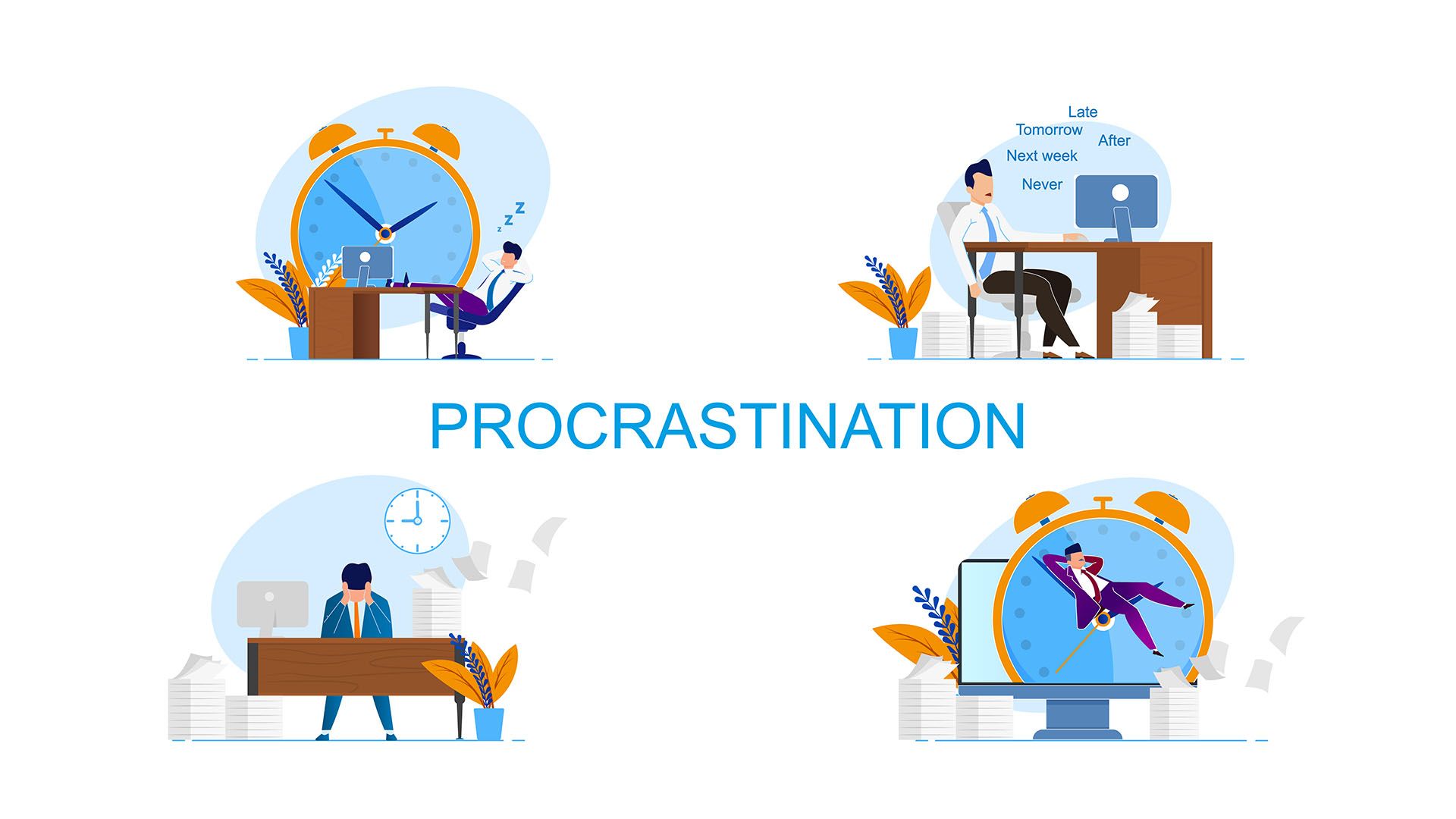Procrastination is perhaps one of the most common bad habits. As a leader or manager of an organization, you need to know why it occurs and why it is harmful. Read this article to find out about the psychology of procrastination.
Contents
What is procrastination?
Procrastination is a deliberate or habitual act of delaying an activity that needs to be done, mostly within a deadline. People who have a high tendency to procrastinate often find themselves engaging in trivial tasks instead of performing important tasks. It is important to note that such people can usually rank tasks based on their relative importance and urgency but find it hard to motivate themselves to perform important tasks.
Everyone needs to know about procrastination and how to avoid it. This is because procrastinating can have negative consequences for us.
Consequences of Procrastination
Missing out opportunities:
How many of you have seen social media posts of a competition that interests you? Had you thought that you would take part in it? Did you have the motivation to prepare for it? How many of you have actually participated in it, despite knowing that it could help you achieve your life goals?
The gap between thinking about doing something and actually doing it makes some people more successful in life than others. If you have a habit of procrastinating, you are likely to miss opportunities that could have helped you progress in life. The direct result of this is that you achieve lesser than your ability.
Regret:
We often end up regretting things we have not done that about things we have done. Procrastinators often end up not doing a lot of things they would have loved to do. Thereby, there is a higher chance that they regret it. Regret brings with itself an emotional and cognitive burden that stays with us for a long time. It can have detrimental impacts on our physical and mental health.

Reputation:
Think out your organization: school, college, workplace, anything. Now think about the people who were looked up to. You are likely to notice one thing in common about all the people who had a good reputation. They never failed to deliver quality output within the stipulated time period. On the contrary, if you are habitually late in submitting your work, people around you will not be able to trust you with something big. This is because you have spoiled your reputation by procrastinating work and lagging behind deadlines. By procrastinating, you not only miss out on current opportunities but also future possibilities.
Self-esteem:
It is a myth that procrastinators can do more work in a short time. Procrastinators are more likely to be poor performers as well. Poor performers often have lower self-esteem and self-confidence because they are not able to meet the standard of their peer group.
Poor time management
Procrastination can create delays in work and might make you a poor time manager. This brings with itself a lot of other problems both in the work and family domains. You may read our article on time management to know more.
Why do people procrastinate?
Most people know that procrastination is not a good habit. Yet, why do they end up procrastinating? Let us find out.
Anxiety:
Many of you will be surprised that anxiety is the number one reason for procrastination. Neil Fiore, the author of one of the best-sellers on procrastination, The Now Habit, said:
“Procrastination is a mechanism for coping with the anxiety associated with starting or completing any task or decision.”
Neil Fiore
All of us have heard the famous adage: “A work begun is half done”. This is because once we have overcome the hindrances, anxieties and fear of beginning a task, we have conquered a lot.
Plenty of time:
When the deadline is far, say 1 week away, many people find it difficult to convince themselves to begin working. This is because they have a false illusion of having a lot of time. They believe it so strongly that despite there being past data to prove otherwise, they hold on to it. The “I will do it tomorrow” attitude is largely responsible for procrastination.
Desire for perfection:
Not all procrastination is driven by negative motives. Most of you know a perfectionist who just cannot click the submit button. They keep on pondering about how to make their work look better even after it has definitely met the acceptable requirements. Procrastination arising from the desire for perfection is similar to obsessive slowness.
Desire to have fun:
You are entitled to have fun. Everyone deserves to have fun during their free time. It not only keeps you humane but also enhances your wellbeing and even your cognitive abilities. However, if you want to have fun all the time, you will end up procrastinating. For instance, an urge to scroll through Instagram and keeping a track of who liked your posts is not wrong. However, if you overdo it, you will procrastinate important tasks.
Faulty decision making:
Many of us are not able to define what our important tasks are. In addition, many of us do not want to spend effort in deciding what our important tasks are. As a result, we may end up making a wrong priority list, in which non-essential activities like playing Candy crush come before exercise.

Conclusion
Now you know what procrastination is, why it is harmful to you and why you procrastinate. Also, read our article on ways to overcome procrastination. Follow us on Facebook, Instagram and Twitter to know about the latest articles first.

3 thoughts on “The Psychology of Procrastination”